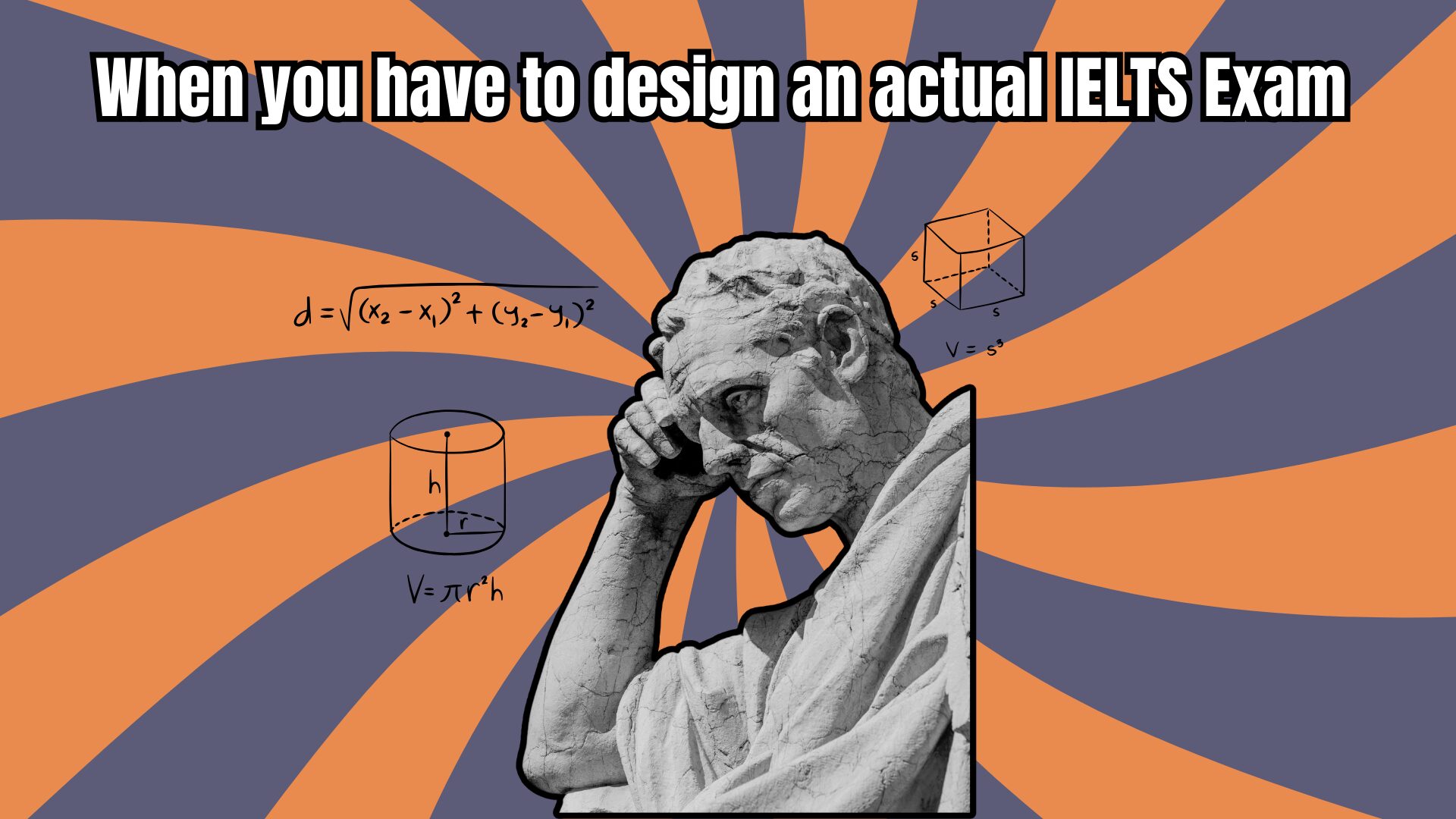When students fail to score on the IELTS exam, they usually blame it for being a difficult test or have a misconception that they got a much more difficult test than their friend’s test who wrote on a different date.
THAT’S NOT TRUE!
Unlike other famous global English Language Testing Exams that use Artificial Intelligence in the format, IELTS still relies on Human intellect and experience – and remains fair in designing all exams on the same difficulty level. That is a reason why the IELTS exam is the leading English language testing exam in the world, with over 3 Million test-takers annually.
IELTS is FAIRER THAN YOU THINK OR CAN IMAGINE.
Cambridge University owns the IELTS exam and their department Cambridge University Press designs the IELTS Test preparation Books for the public and also, they design the Exam.
Time Taken to Design Each IELTS Module
Most students doing IELTS test preparation are unaware of the efforts that go into creating one full-length exam. There are so many teachers, let’s just say in India, who advocate designing the exams for their students. They can do it but the authenticity won’t be there.
HOW???
Creating an IELTS test is a rigorous and meticulous process to ensure accuracy, fairness, and validity. Only a team of experts having years of experience and knowledge can show accuracy in the IELTS test design.
Each module—Reading, Listening, Writing, and Speaking—undergoes multiple stages, taking 1–2 years on average to design a single test. Below is a detailed breakdown for each module:
Before finalizing the exam, IELTS run the exams in different nations as a Mock Test where they give it to students and closely examine how they are responding to the test paper. All the data is analyzed closely. For example, during such campaigns, listening can have questions anywhere from 50-80 and the same for the reading.
The length of the exam is increased using statistics, so the students don’t feel pressure and can attempt it like he’s writing an actual IELTS exam.
1. Reading Module
- Time Required: 1–2 years
- Process:
- Content Development (3–6 months):
- Text Selection: Texts are sourced from authentic materials like books, magazines, and journals, covering diverse topics and difficulty levels.
- Question Creation: Test developers craft questions matching the IELTS types, such as True/False/Not Given, Matching Headings, and Sentence Completion.
- Example: A passage about climate change might include matching scientists to their theories or answering multiple-choice questions.
- Pretesting and Validation (6–12 months):
- Tests are trialled with a diverse group of participants to gauge question clarity and difficulty.
- Psychometric analysis ensures reliability and fairness.
- Final Review (3–6 months):
- Experts refine texts and questions for cultural neutrality and alignment with test objectives.
- Content Development (3–6 months):
If you are looking for all the authentic IELTS Reading Practice Tests for the proper evaluation, click here.
2. Listening Module
- Time Required: 1–2 years
- Process:
- Audio Script Development (3–6 months):
- Scripts mimic real-life scenarios in accents like British, American, and Australian.
- Example: A conversation between a student and a librarian or a lecture on marine biology.
- Recording Production (2–3 months):
- Professional voice actors record the scripts, ensuring clarity and authenticity.
- Question Development (3–6 months):
- Questions are integrated into sections (e.g., Note Completion, Multiple Choice) and trialled for effectiveness.
- Validation and Adjustment (6–12 months):
- Pretests with real participants identify issues like unclear audio or overly difficult questions.
- Audio Script Development (3–6 months):
If you are looking for all the authentic IELTS Listening Practice Tests for the proper evaluation, click here.
3. Writing Module
- Time Required: 1–2 years
- Process:
- Task Design (6–9 months):
- Task 1 (Report/Letter) and Task 2 (Essay) prompts are carefully developed to cover a variety of topics.
- Example: Task 1 might involve summarizing a chart on renewable energy use, while Task 2 could ask for an opinion essay on urbanization.
- Pretesting (6–9 months):
- Tasks are tested with candidates to ensure they generate a range of responses across proficiency levels.
- Validation (3–6 months):
- Panels of experts refine prompts to eliminate ambiguity or cultural bias.
- Task Design (6–9 months):
If you are looking to do the original IELTS Writing Practice Tests, click here. We have also uploaded band 9 samples of the questions.
4. Speaking Module
- Time Required: 1–2 years
- Process:
- Cue Card and Question Development (3–6 months):
- Prompts for Part 1 (Introduction), Part 2 (Cue Card), and Part 3 (Discussion) are created to test fluency, coherence, and interaction.
- Example: A Cue Card might ask candidates to “Describe a memorable trip you took.”
- Pretesting and Calibration (6–9 months):
- Mock interviews assess how well the prompts elicit varied and valid responses.
- Validation (3–6 months):
- Questions are standardized to ensure fairness across different regions and examiner training is updated accordingly.
- Cue Card and Question Development (3–6 months):
If you are looking to do the original IELTS Speaking Practice Tests, click here. We have also uploaded band 9 samples of the questions.
Voxcel aims to impart not only world-class IELTS coaching but also we look forward to develop the overall personality of our students.








